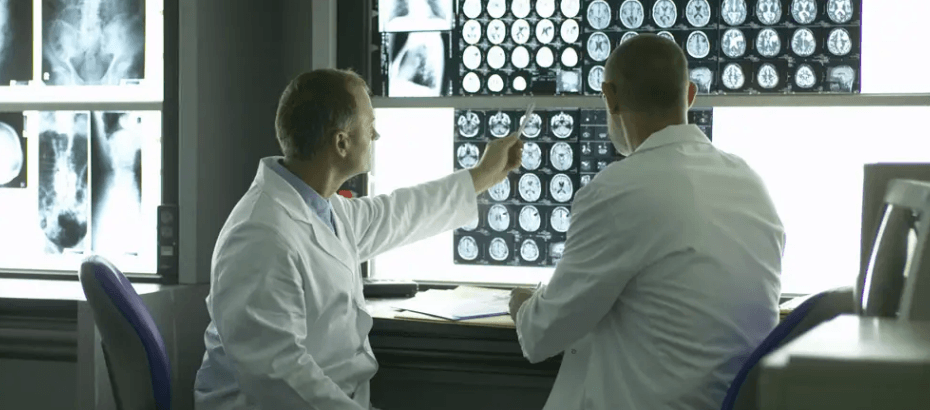Back and neck problems caused by damaged spinal discs can significantly impact daily life. Pain, stiffness, and limited mobility often creates issues that make even simple tasks challenging. While non-surgical treatments are usually the first approach, surgery may become necessary when these options fail to provide relief. Disc replacement surgery, particularly minimally invasive procedures, offers an innovative way to restore spine function, improve quality of life, and allow patients to return to their normal routines.
What Is Minimally Invasive Disc Replacement Surgery?
Minimally invasive disc replacement surgery, or artificial disc replacement (ADR), is an advanced medical procedure aimed at replacing a damaged or degenerative spinal disc with an artificial one. Compared to traditional spine surgeries, such as spinal fusion, ADR allows for the preservation of natural spine movement. Unlike fusion procedures that join two vertebrae together, artificial disc replacement works to maintain flexibility in the spine.
One of the key features of minimally invasive ADR is the significantly reduced trauma to surrounding tissues. Instead of larger surgical incisions, this procedure uses smaller, precise incisions that minimize disruption to muscles and ligaments. This advancement in technique has made ADR an increasingly preferred option for patients suffering from specific spine conditions.
Who Can Benefit From ADR?
Not all spine issues require surgery, but for certain conditions, ADR can offer functional benefits. There are two key conditions where this procedure has proven effective, degerative disc disease, and herniated disc conditions. Here’s how patients with these conditions may benefit from surgery:
Degenerative Disc Disease
Patients experiencing degenerative disc disease often suffer from chronic back or neck pain due to the gradual wear and tear of spinal discs. These discs act as cushions between the vertebrae, and their deterioration can cause sharp pain, stiffness, and mobility issues. Artificial disc replacement in cases of degenerative disc disease can be an optimal solution for symptom relief. By replacing the damaged disc with an artificial one, patients can experience reduced pain, restored movement, and enhanced spine stability. This less invasive approach also makes recovery faster and more manageable.
Herniated Disc
A herniated disc occurs when the inner gel-like material within the spinal disc leaks out, pressing on nearby nerves. This can result in debilitating pain, as well as weakness or numbness in the limbs. For patients with severe symptoms that don’t respond to physical therapy or medication, artificial disc replacement may be the most effective option. Unlike spinal fusion, which limits motion in the affected area, ADR retains the natural range of motion in the spine, allowing patients to enjoy a more active lifestyle post-surgery.
How Does ADR Restore Function of the Spine for Patients?
The primary goal of artificial disc replacement surgery is to restore the spine’s proper function while relieving pain and other symptoms. By using a specially designed artificial disc, the procedure replicates the natural movement and flexibility of a healthy spinal disc. Patients no longer face the stiffness and reduced mobility often associated with traditional fusion surgeries. Minimally invasive ADR offers additional key advantages, like:
- Quicker Recovery: The smaller incisions mean patients heal faster, enabling a speedy return to their everyday lives.
- Minimal Scarring: Reduced tissue trauma helps scarring be kept to a minimum, improving post-surgery aesthetics.
- Less Post-Op Pain: Minimally invasive techniques result in less pain during recovery, reducing the need for long-term pain medication.
- Rapid Return to Activities: Patients can resume normal activities sooner than with more invasive surgeries.
- No Use of Hard Collars or Braces: Since the spine’s movement is preserved, there is no requirement for restrictive braces typically used in spinal fusion.
Learn More About Disc Replacement Surgery
Artificial disc replacement surgery combines innovation, efficiency, and patient-centered care to address complex spine conditions. For those living with chronic back or neck pain caused by degenerative discs or herniated discs, this procedure provides a safe and effective solution that prioritizes both functionality and recovery. If you’re contemplating surgery to improve your spine health, explore your options with a specialist. Book a consultation with a trusted spine specialist to learn whether ADR is the right fit for you.
- The Latest Trends in Dermatology for Skin Cancer Detection
- How Disc Replacement Surgery Can Restore Function in the Spine
- What You Need to Know About an OBGYN’s Role in Pregnancy
- Can You Use A Leaf Blower Wit Heusphatian Tube Dysfunction – Know the Safe Way!
- 2024-361163 Echo Tech at Glendale Memorial Hospital and Health – Game-Changer in Cardiac Care!
